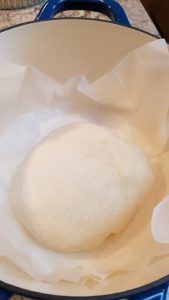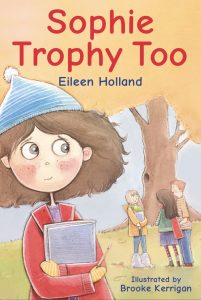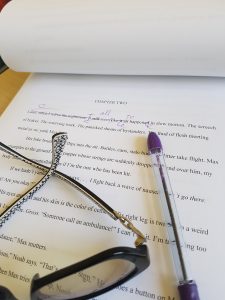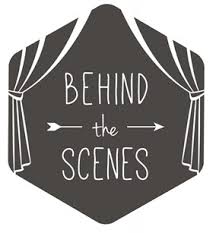
Like a lot of people these days, I’ve been teaching myself to make sourdough bread. A friend gave me a starter and I’ve had fun feeding it and trying out recipes. The results have been mixed. Subtext: the results haven’t been what I expected or wanted.
I cook a lot and I enjoy it. I’m no professional but I know my way around a saucepan, I can turn out a decent meal, and I can bake. At thirteen I made my first batch of cream puffs; the choux pastry was so utterly perfect even I was surprised. I’ve made quick breads, flat breads, yeasted breads. Lots of bread, and almost always with delicious results. How hard could sourdough be?
Turns out, it’s harder than I thought.
The cinnamon buns disappeared quite quickly, and after a couple of tries, I eventually ended up with a passable loaf of bread. But it didn’t have the texture or lift I’ve come to expect from the sourdough breads I’ve devoured in the past.
Because of my previous experience with all things flour I figured I’d be able to do it well right out of the gate (those successful cream puffs spoiled me). But in reality, professional bakers can and often do spend years perfecting the perfect tangy, chewy sourdough loaf or crispy croissant. Working with just a few basic ingredients, they combine their scientific knowledge of the chemistry of baking with their life experience and personal philosophies to create an edible piece of art. Those same ingredients, in different hands, produce very different results.
It’s a bit like writing. Working with only 26 letters, authors combine their understanding of the craft of storytelling with their life experiences and personal philosophies to create readable works of art. Those same letters, in different hands, produce very different results.
My disappointing experience with sourdough reminded me of the people I’ve met who believe they can write a bestseller the first time they sit down at the keyboard. I believe they could write a book if they put in the effort. But they aren’t thinking of the learning curve or the effort involved. They believe that because they write articles for their club newsletter or a professional journal – because they are imminently capable of relaying information in written form – the first book they write will be a rousing success. And that’s unrealistic. It happens, just like perfect choux pastry can happen the first time you whip those eggs into the flour, but it’s not a given.
Zen Buddhists have a concept known as shoshin. It means beginner’s mind. It’s about letting go of preconceptions, being willing to learn, and being open to whatever happens. It’s about focusing on possibilities and not judging outcomes.
Sourdough is a unique beast in the breadmaking world. There’s no question I’m a beginner at it. One Zen master calls beginner’s mind “a mind that is empty and ready for new things.”
I’m definitely ready for new sourdough baking adventures. I’m not sure about an empty mind, but I definitely have an empty stomach.






 Two exciting things happened last week. We moved into our new home and I signed a YA book contract with Crwth Press. Talk about a fresh start filled with wonderful possibilities.
Two exciting things happened last week. We moved into our new home and I signed a YA book contract with Crwth Press. Talk about a fresh start filled with wonderful possibilities.
 . . . there’s still a lot of work going on behind the scenes. It may not feel that way when I walk down to the beach and view the crowds relaxing on the sand, but things are happening, albeit maybe not as quickly or as often as they usually do.
. . . there’s still a lot of work going on behind the scenes. It may not feel that way when I walk down to the beach and view the crowds relaxing on the sand, but things are happening, albeit maybe not as quickly or as often as they usually do. Our lunch was winding down but our beginning writer friend had several more questions. What, she asked, is the one habit that most effectively supports your writing career?
Our lunch was winding down but our beginning writer friend had several more questions. What, she asked, is the one habit that most effectively supports your writing career? It’s time for more questions from our new writer and answers from more seasoned ones. This week: what lessons did I learn the hard way, and what did I wish I knew starting out?
It’s time for more questions from our new writer and answers from more seasoned ones. This week: what lessons did I learn the hard way, and what did I wish I knew starting out?
Comments